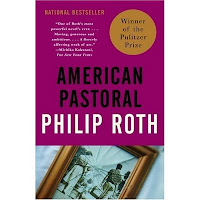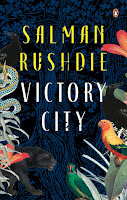
The Palace of Illusions
Chitra Banerjee Divakaruni
Can there ever be a boring telling of the Mahabharata? Rajaji’s version was my introduction to the epic. I have spent innumerable childhood hours reading and re-reading it and then you grow up with these images in your head – the heroic Arjuna, the doomed Karna, the wicked Duryodhana, the wise and righteous Bheeshma, the sly Sakuni, the beautiful and proud Draupadi, the playful and wily Krishna… You have arguments in your head whether Arjuna deserved to kill Karna, whether the Pandavas deserved the kingdom, whether Krishna’s partiality was justified…
It is not a clean story, not a classic case of the good winning over evil. There are far too many ambiguities, too many heroes on the losing side, too many lies and half-truths on the winning one. Victory at the end is not an unalloyed triumph and revenge does have more than a taste of the bitter. Which is what makes it such a fabulous source for re-telling.
Chitra Banerjee attempts one such re-telling. From Draupadi’s perspective. Draupadi or Paanchali is a woman as much embedded in the Indian collective imagination as a Sita, a Rani of Jhansi, a Mira. She is strong, beautiful, with an ability to turn the course of a story on her own strength. Isn’t it strange then that we never name our daughters Draupadi or Paanchali? Her praises are not sung nor is she revered in the way the other heroines are. Strong willed women with a streak of individualism have a way of being uncomfortable. So it is interesting that Banerjee takes her up as the protagonist and weaves the stories of the Mahabharata with her as the centre.
Banerjee stays true to the original most of the time and there are few surprises. But there are some new perspectives that have the ability to startle. Draupadi’s lifelong rivalry with Kunti, Kunti as the stern mother with little tenderness, Bheeshma as the righteous patriarch whose adherence to his code of conduct makes him less than human, Draupadi’s own secret love and longing for Karna that lasts throughout her lifetime, her inability to feel anything half as passionate for her own husbands, her special relationship with Krishna that is hard to qualify, her irrational love for her palace, the description of her father as a vengeance-obsessed autocrat, Karna’s ascetic loneliness…
Coupled with a rather melodramatic telling, Banerjee’s tale of Draupadi is interesting, racy and sometimes surprising. It could have been so much more though… a more unique point of view, with more revelations, more straying from the original, more perspectives that shocked, more imagination that astonished. But overall, The Palace of Illusions is a good solid story that has the ability to grip you. But then, that is the power of the Mahabharata itself.







